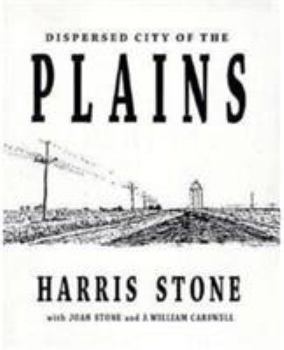Dispersed City of the Plains
Select Format
Select Condition 
Book Overview
"With S o Paulo, Tokyo, New Delhi, Mexico City, and Teheran rapidly approaching densities that are environmentally and emotionally unfit for human habitation, the need for urban planning has never been more pressing. Dispersed City of the Plains inventively pumps fresh air into the debate about what constitutes city building at the end of the twentieth century. It is a book that not only questions authority but supplies an alternative vision."
--James Stewart Polshek, FAIA, Polshek and Partners
Stone argues that the formation of towns has been based largely on the play of economic forces, without sentiment or prior attachment to place. In envisioning humane and rational improvements, he suggests that older notions of settlement be left behind in order to come to terms with the unfolding realities of the dispersed city.





